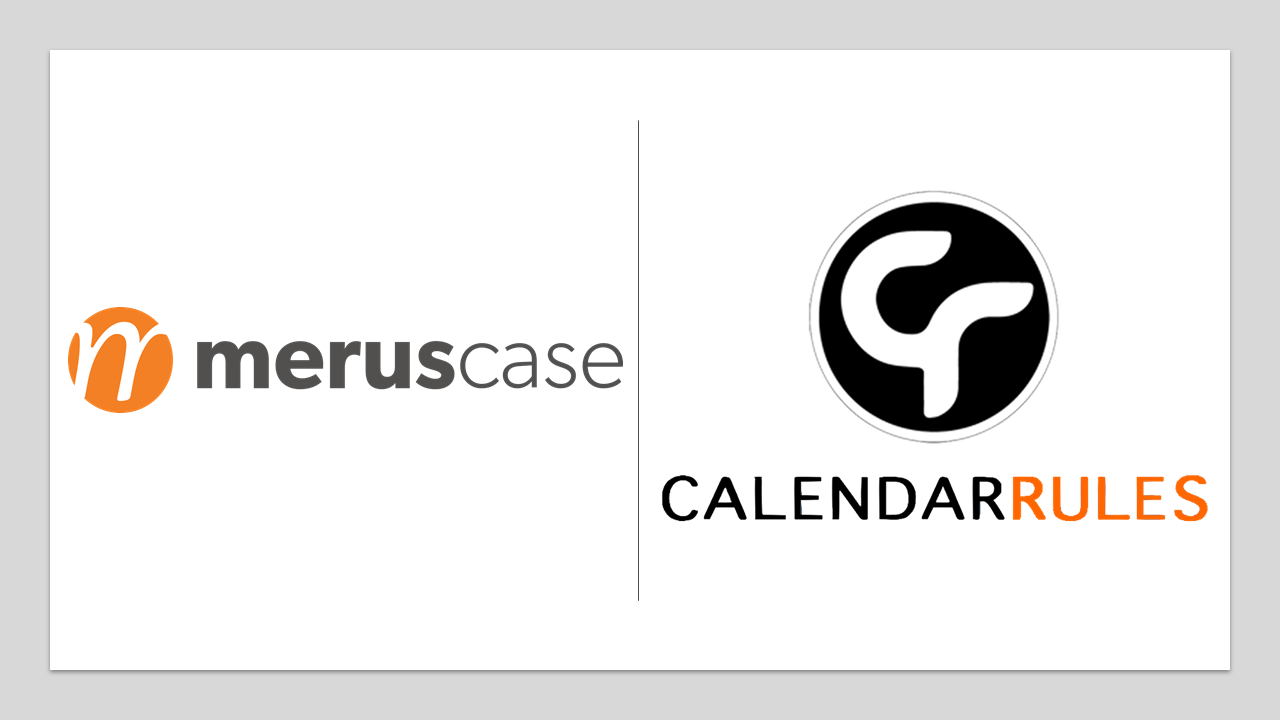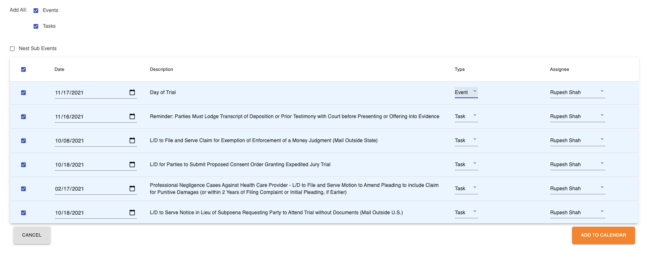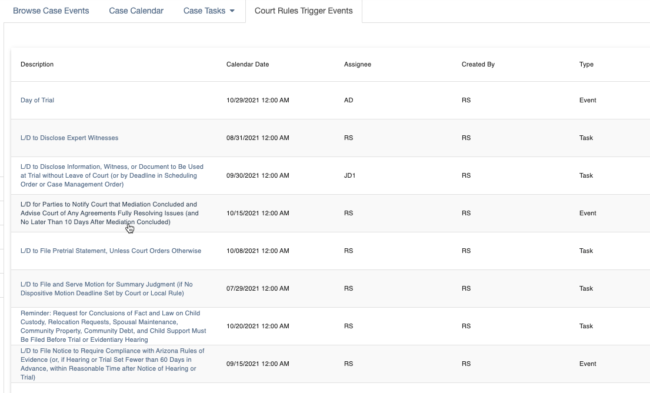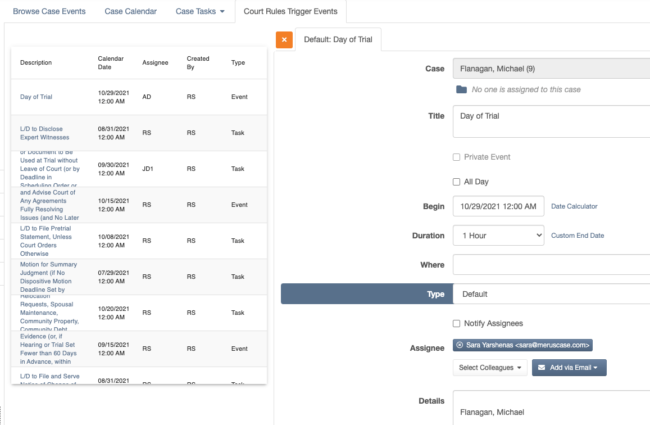The cloud-based practice management platform MerusCase is today launching an integration with CalendarRules to provide rules-based calendaring of court deadlines.
“This integration enhances your legal calendaring process and allows your law firm to stay on track using a single source of truth for your deadlines and events based on specific jurisdiction and court-appointed parameters,” MerusCase said in announcing the integration.
CalendarRules, founded in 2007 as a spin-off from Open Text, says it has over 1,800 rule sets for federal and state courts throughout the U.S.
For MerusCase customers to take advantage of the integration, they must have their own CalendarRules subscription.
Andrew Moffett, product manager at MerusCase, recently gave me a demonstration of the integration in advance of its release.
One striking aspect of it is that, once the user enables the integration, the synchronization between the two products is seamless, and most tasks can be done directly within MerusCase, making the calendaring seem almost native to MerusCase.
The integration also allows firms and users the latitude to configure rule sets based on their own preferences and workflows, such as by opting to pull in only tasks or only events.
To calculate dates from within MerusCase, the user would select the new calendar rules option from the calendar tab, and then select the applicable jurisdiction from a drop-down menu of the jurisdictions to which they are subscribed in CalendarRules.
The user would then select the trigger event for the automatic calculation (such as answer served), and also indicate how service will be performed — electronically, in person, by mail, etc. — so that calculations will fit the appropriate workflow.
In setting up the calendaring, the firm can assign specific tasks to specific individuals within the firm and can nest parent/child events that support one another.
Once the options are configured, the dates are automatically calculated and pulled into the case agenda within MerusCase, where users retain full control, with the ability to change assignments and recalculate dates as necessary.
The dates are also added to the calendars of the appropriate lawyers and professionals.
Using a rules-based calendaring system offers several benefits, MerusCase says:
- It provides a double-check on date calculations, taking into account variables such as holidays and service types.
- It ensures all necessary events for a given jurisdiction are calendared.
- It expedites data entry and recalculation.
- It promotes consistency.
- It minimizes potentially costly scheduling mistakes.
 Robert Ambrogi Blog
Robert Ambrogi Blog



